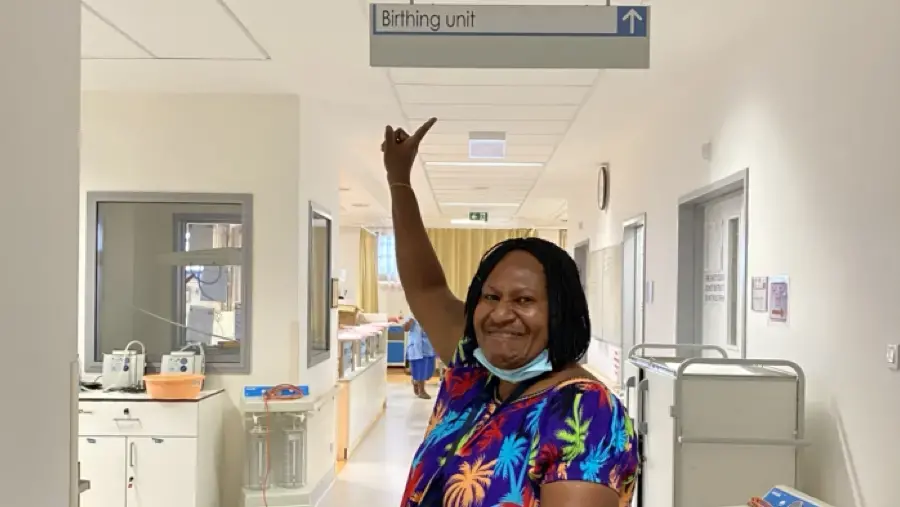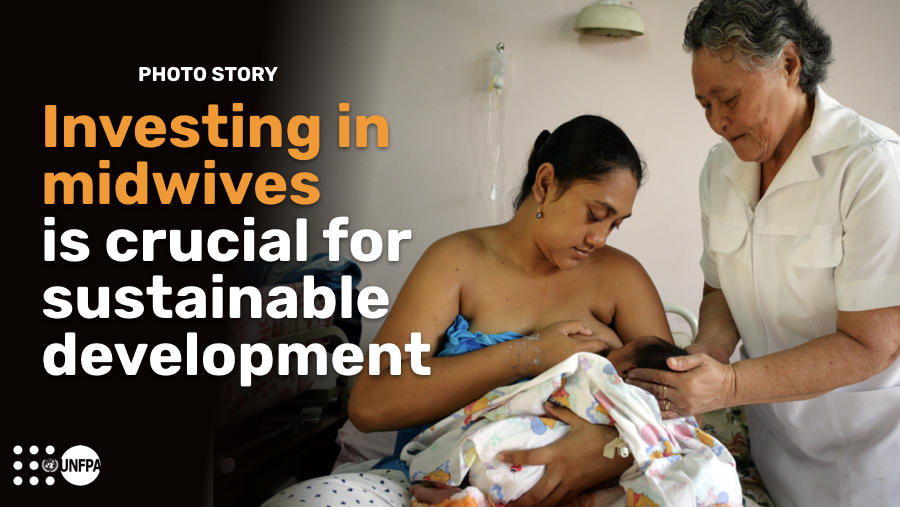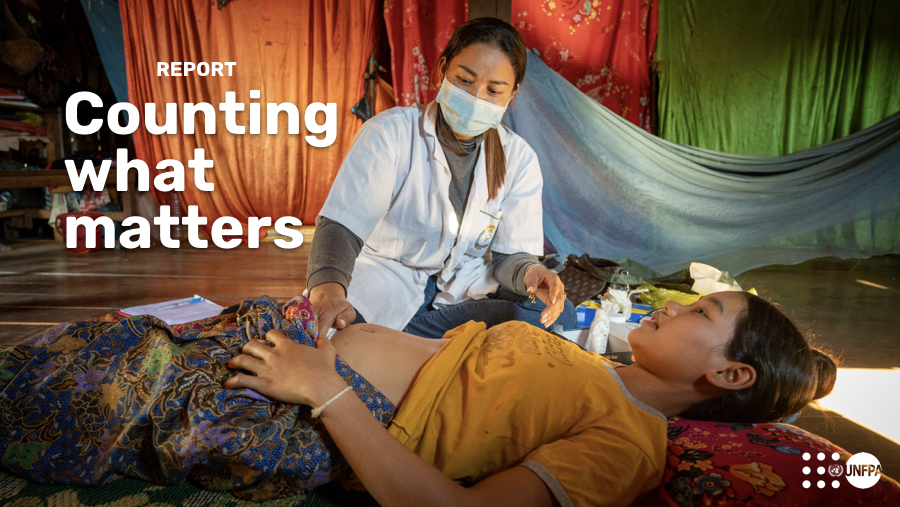Profile: Sister Aiva Pikuri, Papua New Guinea
“It is one of the privileges of being a midwife; you can save a woman’s life”
Sister Aiva Pikuri is a Senior Midwife and Labour Ward Sister-in-Charge at the Provincial Hospital in Goroka, Eastern Highlands Province in Papua New Guinea. She has been working in midwifery and sexual reproductive health for over 20 years and, with support from UNFPA, she has been trained as a national trainer for emergency obstetric care, newborn in-service training and upskilling of community health workers programme.
Aiva’s passion for public health started when she was just a girl. Her grandfather was a post orderly, in remote health outposts across the country.
“When I went to visit him I could see the struggles that women were facing,” Aiva recalls. “Because he was a man, he could not handle a lot of issues women were going through. Women feel uncomfortable coming to deal with a man at the facility.”
Aiva saw first-hand the struggles women were facing and she started planning to become a nurse, but then a tragedy struck her family. “I lost my Auntie to postpartum hemorrhage. This was a second baby and she died because there was not skilled care to attend to her.”
After seeing a relative die from postpartum hemorrhage she wanted to become a midwife. Twenty years later, Aiva is more committed than ever as midwife and educator building a network of skilled birth-attendants in Papua New Guinea.
“We need midwives to be trained to the international standards. Women welcome services when we provide quality information and support.”
“We need midwives to be trained to the international standards,” she says. “Women welcome services when we provide quality information and support.”
Trained midwives can deliver services beyond antenatal care, labor and delivery: they offer family planning, postnatal care, as well as addressing gender-based violence and adolescent health issues.
Aiva says midwives need to be trained to provide counseling skills so they can identify gender based violence during visits to an antenatal clinic.
“Midwives should be able to screen for those signs and counsel the woman and help her to seek support to report to relevant authorities and connect that woman with services. Midwives are on the frontline to screen for gender-based violence and offer help."
"Midwives are on the frontline to screen for gender-based violence and can offer help."
Aiva says midwives see more women than even social workers so they need to be trained across multiple areas to deliver meaningful services. “We can be an avenue for women,” she says. “We can identify them, we provide services and refer to social workers.”
When another wave of the pandemic hit in 2022, the Eastern Highlands was one of the hotspots. The virus reduced staffing levels in the maternity ward from nine to just two midwives left pulling impossible hours. “We were working 12-hour shifts, sometimes 18-20 hours. It was really stressful at that time.”
The hospital set up a triage area for COVID-19 patients. One morning Aiva got a message that a pregnant woman had tested positive and she was in labor. The COVID-19 center had a designated area for antenatal labor and delivery postnatal. The woman was taken down to the isolation area where they could care for her with all the necessary protective equipment.
Later on, in the birthing unit, there was a scream from one of the community health workers who was working with Aiva. “She said the lady that we had sent down to the COVID-19 center is sleeping in one of the empty beds.’”
Aiva found the COVID-19 positive woman lying on a recently vacated bed on the ward. “The woman lifted her legs and I saw that she was about to deliver a baby. How would I be a nurse or a midwife if I sent this woman to the isolation center more than a 10-minute walk away?”
“The woman lifted her legs and I saw that she was about to deliver a baby. How would I be a nurse or a midwife if I sent this woman to the isolation center more than a 10-minute walk away?”
Aiva said to her team: “Do not come near me, just get my PPE.” She could see the baby's foot already hanging down. Aiva put on her face mask and gloves and did a breech delivery.
After the successful delivery Aiva was about to administer oxytocin when she noticed the abdomen was still swollen and there was a twin inside.
“I changed my gloves and put my hand inside her uterus,” Aiva says. “I did a procedure called an internal inversion. I put my hands inside and went around looking for legs.”
Aiva performed an artificial rupture of the membrane, pulled the baby’s legs down and did a second breech extraction delivery and saved both the mother and the babies.
When she saw them two weeks later, Aiva says the woman was so grateful. “The woman told me she had a feeling that she would face a lot of complications. She said she saw my face in her mind and a voice told her to go up to the maternity ward to save her life and her twins.”
Despite the risks, Aiva says it was worth it. “It is one of the privileges of being a midwife, you can save a woman and she has a story to tell and I also have a story to tell.”
Evidence indicates that when a midwife is trained to international standards she should be able to deliver of 90% of sexual reproductive maternal newborn and women’s health. To create a system that is able to meet those needs, Aiva says midwives' voices must be heard. “Let us see this midwife representative at the Health Department and at the local levels.”
Aiva says not enough is being done to recognize midwives for their contribution to public health. “We are employed as nurses, not even midwives. Our profession and our skills are not recognized when it comes to the structures.”
“We are employed as nurses, not even midwives. Our profession and our skills are not recognized when it comes to the structures.”
Aiva believes that advocacy for midwifery education is a long-term effort. “We are still pushing and pushing. In time, I think we will get equality in leadership but I do not know when. It is a big challenge for us in Papua New Guinea as women.”
There has been significant progress for midwives in recent years. “We have been given more responsibilities," Aiva says. "We are included in committees, we are invited to speak in forums and we are doing more than we were doing 20 years ago. We are being recognized at the international level with what is happening with midwives.”
Learn more
The State of the World's Midwifery 2021




